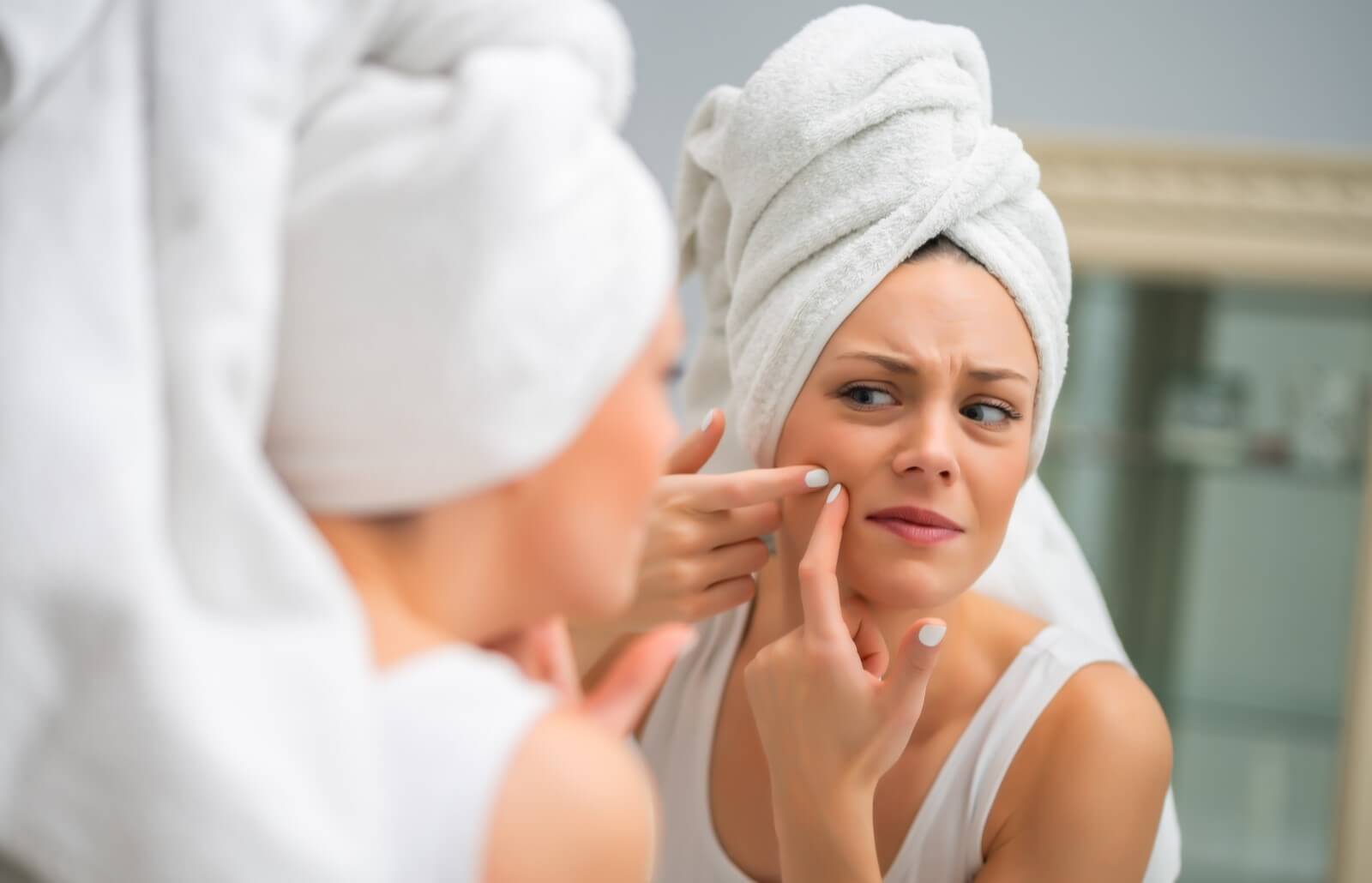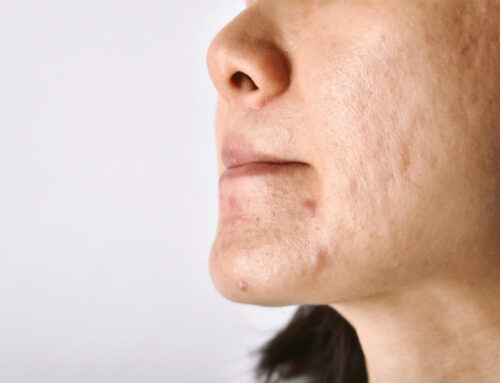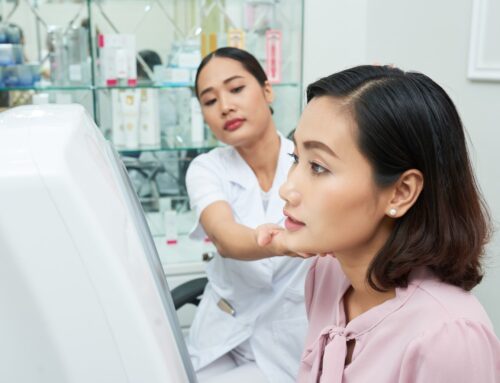
When you hear the word “acne,” you probably think of this as a problem that impacts teens. However, not all acne clears at the age of 18, and even if you never suffered from acne as a teen, you can develop acne as an adult.
Many people are confused when they begin struggling with acne as adults because they don’t understand the root cause. We have all heard that acne is due to excessive oils in the skin and puberty hormones. Well, this is accurate, but only when discussing teen acne. Let’s dive in to learn about the causes of adult acne and the best treatment options.
So, what is adult acne? Adult acne is defined as persistent breakouts after the age of 25. However, the cause of adult acne can be more complicated than teen acne. While excessive oil can cause pores to become clogged with skin cells and bacteria, this is not the underlying cause of adult acne most of the time. Below are the top five most common reasons people develop acne as an adult.
1. Hormones, stress, and the menstrual cycle in women can all influence oil production
2. Products such as haircare, skincare, and make-up can clog pores
3. Medications such as steroids can reak havoc on the skin
4. Lifestyle factors such as diet can cause excessive inflammation
5. Now, due to the pandemic masks are causing an increase in adult acne as well
Treating Adult Acne
There are in-office treatments and home care products that are essential when battling adult acne. The keyword is “exfoliation.” Exfoliation is the process of removing dead skin cells and bacteria from the surface of the skin. Chemical peels are one of the best in-office treatments to unclog pores effectively and to increase cell turnover. However, it pivotal to use medical-grade skincare products at home that contain specific ingredients that are designed to treat and prevent further breakouts.
The best ingredients to incorporate into your skincare regime are vitamin A, glycolic acid, salicylic acid, and vitamin C. There are a wide variety of products on the market that contain these ingredients. However, it is important to ensure you are using medical-grade skincare products under the guidance of a Licensed Aesthetician.
- Vitamin A (Retinol): Increases cell turnover and improves skin texture. Most commonly sold as a night cream.
- Vitamin C: Helps produce collagen and helps diminishes hyperpigmentation caused by acne scarring. Most commonly sold as a serum to use during the day.
- Glycolic/Salicylic Acid: Removes skin cells on the surface of the skin and alleviates clogged pores. Most commonly incorporated into cleansers or toning pads.
- Antioxidants: Helps calm inflammation. Most commonly found in serums and creams.
Tips to Prevent Adult Acne
- Eat a diet rich in antioxidants such as fresh fruits and vegetables to keep the skin as healthy as possible.
- Don’t over-dry your skin through harsh products. The drier your skin, the more oil the skin will produce to compensate. Keep your skin moisturized with a quality cream.
- Invest in quality homecare products that contain Vitamin A, glycolic/Salicylic, Vitamin C, and antioxidants.
- Schedule regular medical skin treatments with a licensed Aesthetician.
- Always cleanse your make-up off every night before going to bed, change your pillowcase regularly, wash your make-up brushes, and avoid touching your face.
- Don’t squeeze pimples or perform at home extractions. This can introduce more bacteria and cause further inflammation.




